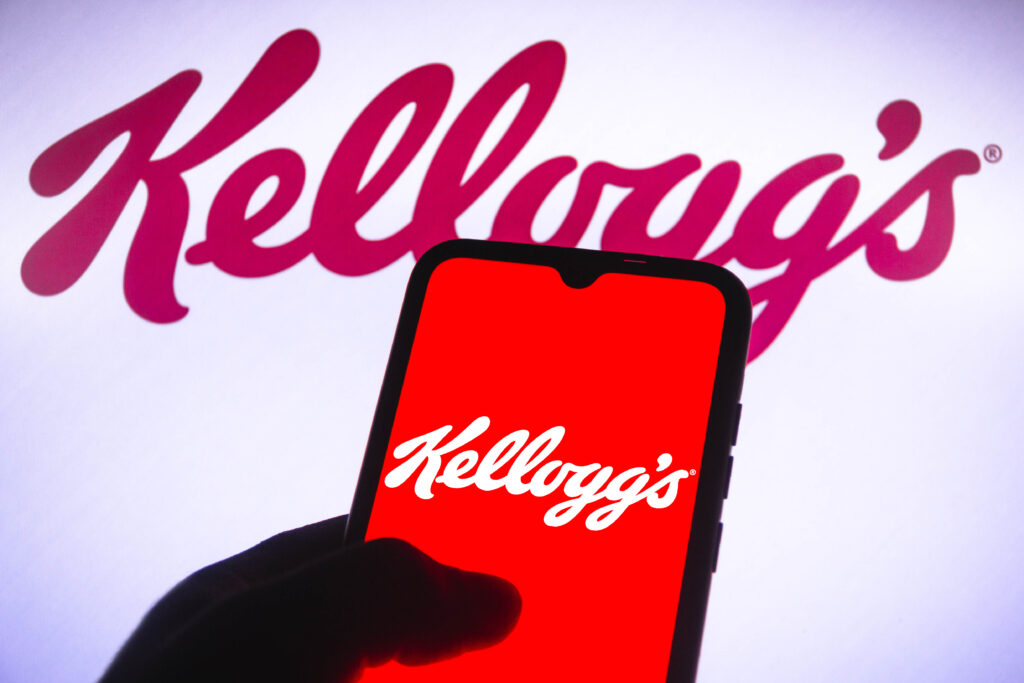In a recent statement that has since stirred debates across the consumer spectrum, Gary Pilnick, CEO of Kellogg, propounded an unconventional solution to the escalating food prices—eating cereal for dinner.
This advice, emerging amidst an inflationary period with marked implications on household food budgets, has not been warmly received by all, highlighting a divide between corporate strategy and public sentiment.
Understanding the Economic Backdrop

Food inflation has been a pressing concern, with The Wall Street Journal reporting that in 2022, Americans allocated 11.3% of their disposable income to food expenses, the highest percentage since 1991.
Kellogg’s suggestion comes at a time when families are already grappling with tightened budgets, making every dollar more significant than ever.
Read More: Wendy’s Tests Surge Pricing; Pioneers $20M Digital Upgrade in Fast-Food Industry
Kellogg’s Stance: An Affordable Alternative?
Pilnick’s remarks during a CNBC interview—asserting that the idea of having cereal for dinner is resonating well with the consumer base—paints a picture of the company’s approach to offering economical meal options.
He emphasizes the affordability of cereals, presenting them as a viable choice for consumers feeling the economic squeeze.
Kellogg’s has long marketed their cereals as a cost-effective meal solution, asserting in a 2022 press release that a meal composed of Kellogg’s cereal, milk, and fruit can cost less than a dollar.
Public Outcry: A Misalignment of Perspectives

However, the reception on social media platforms sheds light on a starkly different consumer perspective.
Users have criticized the suggestion as insensitive, arguing that it trivializes the challenges faced by those struggling to afford balanced meals amidst ongoing economic pressures. One comment articulated distress over the notion, deeming it a “cruel” oversimplification of the impacts of inflation.
Another pointed out the dissonance between Pilnick’s substantial compensation package and his advice, highlighting concerns over corporate disconnect.
Also Read: Apple Abandons Electric Car Project, Redirects Focus to Core Businesses
Market Response: A Reflection of Sentiment
The market reacted to Pilnick’s remarks with skepticism, as evidenced by a slight dip in Kellogg’s stock prices following the interview.
This downturn might signify investor apprehension about the company’s current marketing strategies and their potential long-term repercussions on brand image and consumer trust.
Examining the Broader Impacts
The controversy surrounding Kellogg’s “cereal for dinner” campaign goes beyond immediate backlash, prompting a larger conversation about corporate responsibility, particularly in times of economic distress. It raises questions about the balance between strategic marketing and sensitivity towards prevalent societal issues.
Navigating Forward: A Call for Empathy and Innovation
As Kellogg navigates this public relations challenge, there is an emergent need for strategies that resonate with consumer realities without seeming out of touch.
This incident underscores the critical role of empathy in marketing—not just understanding where the consumer is, but recognizing the gravity of their circumstances.
Moving forward, it will be essential for Kellogg, and similar corporations, to find innovative ways to address consumer needs without undermining the seriousness of prevailing economic hardships.
In sum, the “cereal for dinner” proposition has opened up an extensive debate on corporate strategies amid inflationary times.
The unfolding dialogue is not just about a meal choice but reflects broader concerns about affordability, nutritional value, and the corporate understanding of consumer realities.
As Kellogg ventures to mend its stance with the public, the episode serves as a reflective moment for the industry at large, spotlighting the delicate dance between business interests and public welfare.
Read Next: Japan’s Core Inflation Beats Forecasts, Hits 2.0%: Nearing End of Negative Rates

Joe Wallace is a writer and editor from Illinois. He was an editor and producer for Air Force Television News for 13 years, and has served as Managing Editor for publications including Gearwire.com, and Associate Editor for FHANewsBlog.com. He is also an experienced book and script editor specializing in non-fiction and documentary filmmaking

